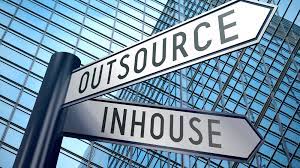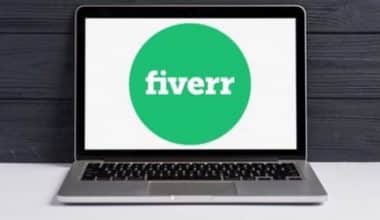If you own or are considering starting a small business, I can assure you that you will require a small business account. You could jeopardize yourself and your company if you don’t. When you manage a small business, you will have a lot more responsibilities than if you were an individual with a personal bank account. To begin, be sure that your business and personal finances are kept separate. If they aren’t, you could be exposed to risk in a variety of ways, including liability for business debts and litigation, as well as problems when it comes time to file your taxes. That is why in this article we shall be discussing online small business accounts, how to open a small business account and so much more.
Small Business Bank Account
Small business banking refers to a company’s financial dealings with a financial institution that specializes in providing business loans, credit, savings accounts, and checking accounts to businesses rather than individuals.
When a bank, or a subsidiary of a bank, only deals with businesses, it is known as business banking. A retail bank is one that mostly deals with individuals, whereas an investment bank is one that primarily deals with capital markets. Some financial institutions cater to both categories of customers.
Overview
Having a professional business bank account is vital whether you’re just starting out or have been in business for a long time. Every business or organization, no matter how tiny, requires one: It is crucial to the financial operations of your company since it collects deposits from customers and makes payments to staff and vendors. It’s also necessary for appropriate bookkeeping, tax reporting, and other legal requirements.
There is no one-size-fits-all solution for a company bank account: What you require depends on the type of company you run, its size, and its complexity. However, there are some account features that all business owners, regardless of their industry, should examine when looking for a financial institution. We’ve combed through the options and selected the finest in numerous categories.
Benefits of Small Business Bank Account
You’ll need a business checking account if you’re a small business owner or a startup founder. Why not just use your personal checking account to pay for business expenses? Here’s why you should get a separate business account:
- It will make accounting a lot easier and give you greater visibility into whether or not your business is profitable
- It will help you better manage your business cash flow
- This will make it easier to account for business expenses at tax time
- It will make the transition to an LLC or corporation much easier should you decide to formalize your business entity down the road
Many small company lenders, including the SBA, will not even evaluate your loan application unless you have a business banking account, making it far more difficult to find small business loans to drive expansion or financially fund business activities. In other words, most small businesses benefit from having a company checking account.
Today, you may discover a range of fee-free business checking accounts, as well as those that give a limited amount of free transactions before costs kick in. Some companies provide benefits such as cashback or discounts on business supplies.
How Much Money Should be in a Small business Bank Account?
Depending on the nature of your company, you should tailor the amount of money you put away in the business savings account accordingly. Aim to set aside at least ten percent of the profits you produce each month, and keep a reserve fund equal to at least six months’ worth of operational expenses. This is especially important to keep in mind if your company operates on a seasonal basis and generates the majority of its revenue within a condensed period of time.
How Do I Pay Myself for My Business?
The proprietors of a company have the option of paying themselves a draw, a salary, or some combination of the two: A draw is a direct payment made from the company to the individual themselves. During the payroll process, a portion of a salary is set aside to cover tax obligations. When you use a combination approach, a portion of your income is treated as a salary, while the remaining portion is treated as a draw or distribution.
Do I Legally Need a Business Account?
There is no legal necessity for sole proprietors to maintain a business bank account…. One of two things can be meant by the term “bank account for self-employed individuals”: either the use of a personal account for the business that is performed when self-employed, or the use of a business account instead. There is no legal necessity in most jurisdictions for lone proprietors to maintain a company bank account.
Can I Run a Business Without a Business Bank Account?
If you operate your business as a lone proprietor, opening a business bank account is not mandated by law. However, if you want to be taken seriously as a business owner, you should get a separate bank account for your company. This is why: Keeping your personal funds and business operations separate with a dedicated business bank account is a great way to simplify both tasks.
Is There a Credit Check for Business Bank Account?
When I open a bank account for my company, do I have to submit a credit check? The thing is; when opening a business checking account at most financial institutions, a credit check is not typically performed; however, a ChexSystems report is almost always performed. When an individual applies to a bank for a loan or a business line of credit, the financial institution may perform a credit check as well as a score check.
Can You Run a Small Business Without Registering it?
You are not allowed to legally use any business name before you have registered it as an officially recognized business entity with both the authorities in your home state and the Internal Revenue Service (IRS). The Internal Revenue Service does not require any particular actions or paperwork for a company to be acknowledged as a business by the agency.
Which Bank is Best for Self-Employed?
The following is a list of the seven best bank accounts for professionals that are self-employed: Bluevine is the best bank account out there for people who work for themselves and want a high-interest yield on their checking account. The best option for new freelancers who are looking for help with their digital tax preparation. The best digital-only bank for instant access to funds and the quickest possible payments is Novo*.
Small Business Bank Account Online
Opening a small business bank account online is often faster and easier than visiting a branch and filling out an application, and you can do it on your own time.
Here, we’ll go through some of the top options for opening a small business bank account online, so you can select the ideal option for your company.
#1. LendingClub
LendingClub Tailored Checking is ideal for growing businesses. The online business account offers a robust suite of online and mobile banking tools, plus the ability to earn interest.
Features include:
- Unlimited fee-free transactions
- Fee-free access to a worldwide network of ATMs and unlimited reimbursements on fees charged by other banks
- Earn 0.10% APY on balances over $5,000
- Access to the LendingClub mobile app which allows you to create digital invoices, send wires and ACH transfers, make deposits, and pay bills
- Earn 1% cash back on online and signature-based “credit” transactions made with your LendingClub business debit card
You can apply for an account online in just a few minutes but LendingClub may take two to five business days to process your application. Open a LendingClub Account Now
#2. Brex Cash
First things first: Brex Cash isn’t a business bank account. Brex Cash is a cash management account, offered by Brex Treasury LLC, a registered broker-dealer that is a member of FINRA and SIPC.
You can deposit your funds as cash (where you’ll have FDIC protection of up to $250,000) or you can invest in a money market fund that yields dividends. And, you don’t have to choose just one, you can allocate between the two options however you’d like.
Brex Cash offers a range of other perks, with a focus on tech-first, online-focused businesses. Here’s what you can expect with this cash management account:
- Free unlimited ACH, wire, and check payment options (including international)
- No monthly fees, no minimum balance requirements
- Instant payouts for eCommerce companies receive funds for your sales right away instead of waiting days or even weeks
- Integrated expense management tools
Brex Cash also includes access to the Brex credit card, which is paid from your account daily (like a debit card), and offers competitive rewards points on your transactions, which can be redeemed for cash back, gift cards, or miles.
You can earn:
- Up to 8x points on ridesharing
- Up to 5x points on flights and hotels booked through Brex Travel
- Close to 4x points on dining
- Up to 3x points on recurring software
- 1x points on everything else with no limits.
Brex Cash is an online-only account and can be a great option for business owners looking to manage their finances digitally especially those who want to take advantage of the rewards points or any of Brex’s other unique features.
#3. Novo
Novo is an online business bank account that was created specifically with startups and small business owners in mind. This business checking has no monthly fees, unlimited fee-free transactions, and access to a range of features designed to help entrepreneurs manage their finances online.
Some of Novo’s benefits include:
- Unlimited ATM refunds (instead of a designated ATM network)
- Free ACH transfers, mailed checks, and incoming wires
- Unlimited integrated invoicing
- Novo Reserves tool for budgeting and planning expenses
- Integrations with business tools like Stripe, Shopify, QuickBooks, and Xero
- Its mobile app, allows you to track expenses and payments, make transfers, deposit checks, and more
It requires a $50 minimum opening deposit. Applying online is quick and simple but it typically takes two to three business days to review applications.
#4. NBKC
With NBKC, you can open both a business checking account and a business savings account online. NBKC’s business checking account, also called its “business account,” has virtually no fees. In fact, the only fees NBKC charges are a $5 fee to send domestic wires and $45 to send or receive international wires.
This online business checking account offers:
- No minimum opening deposit, no minimum balance requirements, and no monthly fees
- No fees for transactions, overdrafts, check deposits, e-statements, stop payments, and incoming domestic wires
- Online and mobile banking included
- Fee-free access to over 32,000 MoneyPass ATMs across the U.S. to withdraw or deposit cash plus, up to $12 in monthly refunds for fees charged by other ATMs
- Option to add extra account features, like desktop deposit or ACH credits and debits, for small monthly fees
#5. BlueVine
BlueVine, which is perhaps best known for its business financing platform, also offers a free online business checking account. More so, business owners who wish to avoid fees and earn interest on their balance might consider the BlueVine business checking account.
Features include:
- No minimum deposit, no monthly balance requirement, and no monthly service fees
- Unlimited number of transactions, no fees for non-sufficient funds, no ACH payment fees, and no fees to receive domestic wire payments
- Earns 1% interest on account balances up to $100,000
- Offers mobile check deposit, account transfers, the ability to pay vendors and bills by ACH, wire, or check, as well as the ability to schedule one-time and recurring payments
- Fee-free cash withdrawals at any ATM within the MoneyPass network and the ability to deposit cash at over 90,000 Green Dot locations across the U.S.
#6. Chase
Chase Business Complete Banking combines the best of both worlds by allowing you to open a business checking account online while also providing access to over 4,700 physical locations essential for organizations that deal primarily in cash.
With Chase Business Complete Banking, you receive:
- Unlimited electronic deposits
- 20 free paper and teller transactions per month
- Up to $5,000 in cash deposits per month, fee-free
- Free online and mobile banking with bill pay
- Integrated credit card processing through Chase QuickAccept
- Access to 16,000 Chase ATMs
This account has a $15 monthly fee; however, there are multiple ways you can waive it. You can open an account thus, online if your business is a privately held sole proprietorship, LLC, or corporation. All other business types need to apply at a branch location.
#7. Bank of America
Bank of America business checking is a great option for growing and evolving business banking needs. The brick-and-mortar bank offers more free physical transactions per month than Chase Business Complete Banking which can be important if you’re looking for in-person banking.
For example, here’s what you can expect with Bank of America’s Business Advantage Fundamentals account:
- Unlimited fee-free electronic transactions.
- Up to 200 fee-free non-electronic transactions per month.
- Up to $7,500 in fee-free cash deposits per month.
- Access to 17,000 Bank of America ATMs and 4,300 branch locations across the U.S.
- Free mobile banking, customizable account alerts, and Zelle for your business
- Business Advantage 360 online banking platform with the integrated Cash Flow Monitor tool
Also, as your business grows, you can always upgrade to the next level, the Business Advantage Relationship account. Bank of America also offers a Preferred Rewards program for eligible business owners. This program gives you access to discounts on other products and services, as well as a way to waive the monthly fees on either of the business checking accounts.
Who Has the Best Business Checking Account?
Bank of America offers the most attractive business checking account for newcomers due to the fact that its monthly service charges are waived. You are allowed up to 200 free transactions each month, and you can make free deposits of up to $5,000 each and every month. Within the app, Bank of America also gives you the ability to check your Dun & Bradstreet score for your company’s credit.
Can I Use a Personal Account for My Small Business?
You shouldn’t use your personal bank account for your company’s funds, partly because doing so may have an effect on your legal responsibilities. This is true even if maintaining two bank accounts seems cumbersome to you. In point of fact, in addition to having a personal bank account, one of the first steps toward owning a business should be opening a bank account specifically for the firm.
What Banks Offer Free Business Checking Accounts?
The finest free checking accounts for businesses should not have any monthly costs or should have fees that are easy to waive. Bluevine, U.S. Bank, First Internet Bank, Novo, Mercury, Grasshopper, and Oxygen Bank are some examples of financial institutions that do not impose monthly fees. Bank of America, Chase, and Capital One are examples of financial institutions that make it simple to avoid paying their monthly fees.
Should I Open a Business Bank Account for My LLC?
It is critical to establish a separate bank account for your company in the event that you are sued or face significant liability. This will allow you to demonstrate that you and your company exist as two distinct financial entities. In order to assist keep the members of the company protected from personal liability, everybody who joins an LLC should open a bank account for their firm.
How To Open Small Business Bank Account
You can open a business checking account online by providing some basic business and personal information and uploading key documents.
While the exact requirements will vary from one bank to the next, here’s what you need to open a business bank account:
- Personal details and identification (driver’s license, social security number)
- Basic business information (EIN, address)
- Business formation documents, such as articles of incorporation, a partnership agreement, articles of organization, etc. (based on your entity type)
- DBA certificate (if your business is using a DBA)
Applying for an online business bank account may only take a few minutes, but it will take several business days for your application to be reviewed and approved.
How to choose a free business checking account
#1. Consider fees and minimum balance requirements
Look for business checking accounts that don’t charge monthly service fees and don’t require a minimum balance. Also, read the fine print carefully: some accounts are free only if you keep a daily or monthly minimum amount or meet another requirement to avoid paying a service fee.
#2. Look at transaction and cash deposit limits
Examine how many transactions and how much money your company makes each month. Many business checking accounts impose transaction and cash deposit limits (and levy penalties if those limits are exceeded), so choose an account that suits your needs.
#3. Evaluate additional account features
Consider where you can use your business debit card, whether the account pays interest, and whether you have access to online and mobile banking. Also, make sure you’re aware of any features that could result in additional fees or charges.
#4. Think about how you would prefer to open an account
Some banks offer a variety of ways to open a business checking account, such as online, over the phone, or in person, while others have fewer alternatives.
FAQs
How do I pay myself from my LLC?
You pay yourself from your single-member LLC by making an owner’s draw. Your single-member LLC is a “disregarded entity.”
Should I pay myself a salary from my LLC?
Do I need to pay myself a salary? If you’re a single-member LLC, you simply take a draw or distribution. There’s no need to pay yourself as an employee.
Should owner of LLC be on payroll?
Therefore, the business must put them on its payroll and compensate them through wages or salaries from which income taxes, Social Security and Medicare taxes (FICA), unemployment taxes (FUTA), and possibly other taxes are withheld.






